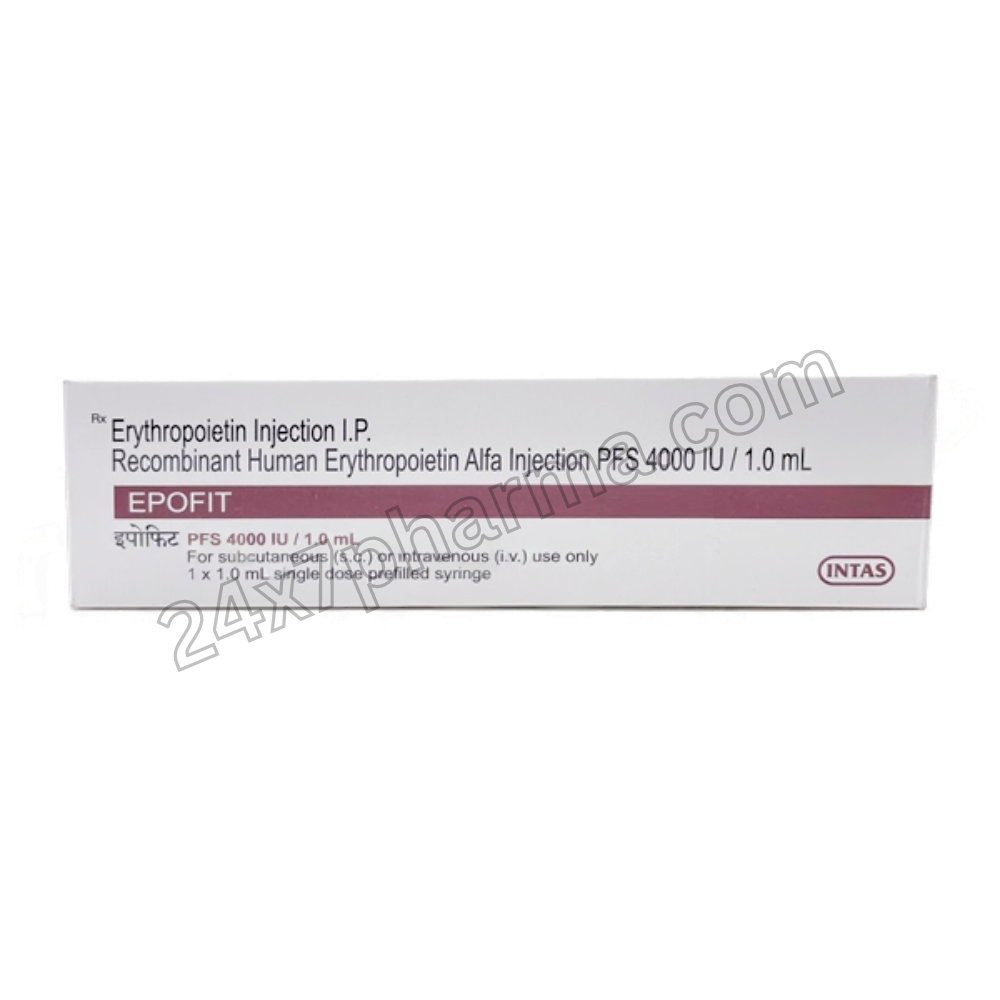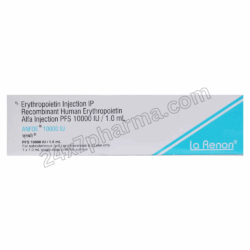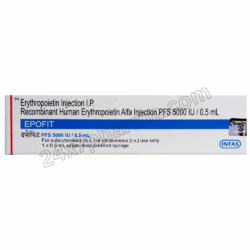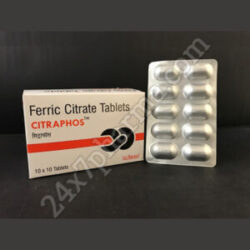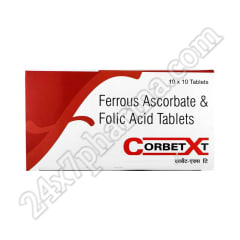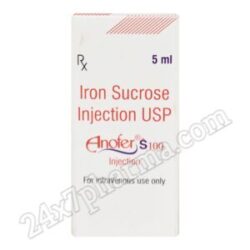Epofit 4000 IU (Erythropoietin Injection) is a vital medical advancement designed to address specific conditions like anemia associated with chronic kidney disease, chemotherapy, or other medical treatments. As a synthetic erythropoietin injection, Epofit 4000 stimulates red blood cell production, improving oxygen delivery throughout the body. Its role in healthcare is critical for individuals facing red blood cell deficiencies, ensuring a better quality of life.
How Does Epofit 4000 IU Injection Work?
Epofit 4000, a synthetic erythropoietin injection, mimics the natural hormone erythropoietin produced by the kidneys. This hormone plays a crucial role in stimulating bone marrow to produce red blood cells. When the body experiences a deficiency in erythropoietin due to kidney disease or other factors, the Epofit 4000 injection of erythropoietin steps in to compensate for the shortfall.
The injection works by binding to specific receptors in the bone marrow, triggering the production and maturation of red blood cells. This mechanism helps combat anemia by improving oxygen transport and alleviating symptoms like fatigue, weakness, and shortness of breath. Patients undergoing treatments such as dialysis or chemotherapy greatly benefit from the use of Epofit 4000 erythropoietin injection for anemia.
How to Use Epofit 4000 IU Erythropoietin Injection
Using Epofit 4000 synthetic erythropoietin injection correctly is essential to maximize its effectiveness and ensure safety. Here’s how it should be administered:
- Consult Your Doctor: A healthcare professional will determine the appropriate dosage and frequency of Epofit 5000 IU injection and Epofit 6000 IU injection based on your medical condition, weight, and response to treatment.
- Administration: Epofit 4000 is typically administered as a subcutaneous or intravenous injection. The route of administration depends on the specific medical needs.
- Storage Guidelines: Proper storage is critical. Keep the injection in a refrigerator between 2°C and 8°C. Avoid freezing or exposing it to direct sunlight. Always check the Epofit erythropoietin injection 4000 IU storage instructions provided on the packaging.
- Self-Administration: If your doctor approves self-administration, ensure you follow sterile techniques and dispose of used needles properly.
By adhering to these guidelines, you can safely and effectively use Epofit 4000 erythropoietin injection to manage anemia.
Side Effects of Epofit 4000 IU Erythropoietin Injection
While Epofit 4000 IU is generally well-tolerated, some patients may experience side effects. It is essential to recognize and address these promptly:
Common Side Effects:
- Injection site reactions like redness, swelling, or pain.
- Headaches or dizziness.
- High blood pressure (monitor regularly during treatment).
- Nausea or vomiting.
- Serious Side Effects:
- Increased risk of blood clots, which may lead to complications like stroke or heart attack.
- Severe allergic reactions, such as rash, itching, or difficulty breathing.
If you experience any unusual symptoms, consult your doctor immediately. Understanding the Epofit 4000 injection side effect profile helps ensure safe usage and timely intervention if needed.
Warnings & Precautions for Epofit 4000 Injection
Using Epofit 4000 injection of erythropoietin requires strict adherence to medical advice. Keep the following precautions in mind:
- Medical History: Inform your doctor about any history of high blood pressure, heart disease, or clotting disorders.
- Monitoring: Regularly monitor hemoglobin levels to avoid excessive red blood cell production, which can lead to complications.
- Pregnancy and Breastfeeding: Consult your healthcare provider if you are pregnant, planning to become pregnant, or breastfeeding.
- Drug Interactions: Disclose all medications and supplements you are taking to avoid potential interactions.
- Storage: Follow proper storage practices to maintain the effectiveness of Epofit erythropoietin 4000 IU injection.
Taking these precautions ensures the safe and effective use of Epofit 4000 synthetic erythropoietin injection.
FAQs
Q1. How much does Epofit 4000 injection cost?
Ans: The Epofit 4000 injection price varies depending on the region and supplier. Consult your healthcare provider or pharmacist for accurate pricing.
Q2. How should I store Epofit 4000?
Ans: Follow the Epofit erythropoietin injection 4000 IU storage guidelines—store it in a refrigerator and avoid freezing or exposing it to heat.
Q3. Who should not use Epofit 4000?
Ans: People with uncontrolled hypertension, known hypersensitivity to erythropoietin, or specific medical conditions should avoid this injection unless advised by a doctor.

